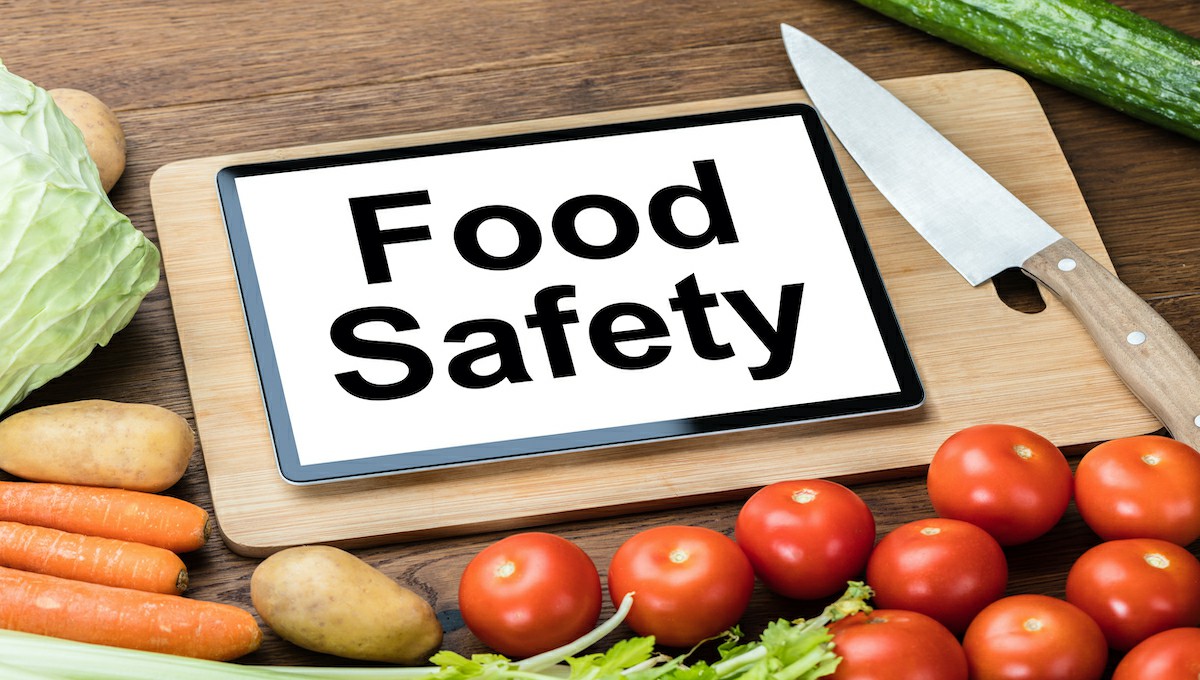HACCP Certification: The Essential Path to Food Safety Compliance in Dublin, Cork, Galway, and Beyond
For food businesses in Ireland, complying with safety regulations is more than just a legal obligation; it's a commitment to quality. In this article, we will explore how HACCP training not only helps businesses in Dublin, Cork, Galway, Limerick, Waterford, and Belfast maintain compliance with regulations but also enhances their reputation and builds consumer trust.
What is HACCP?
Hazard Analysis Critical Control Point (HACCP) is a systematic approach to food safety that identifies, evaluates, and controls potential hazards throughout the food production process. This means that from farm to fork, every step in the food supply chain can be monitored to prevent contamination and ensure food hygiene.
Key Principles of HACCP
- Conduct a hazard analysis: Identify potential hazards that could affect food safety.
- Determine Critical Control Points (CCPs): Points in the process where hazards can be controlled or eliminated.
- Establish critical limits: Define acceptable limits for each CCP.
- Implement monitoring procedures: Develop procedures to monitor each CCP.
- Establish corrective actions: Procedures to follow when monitoring indicates a deviation from an established critical limit.
- Verification: Confirm that your HACCP system is working effectively.
- Record-keeping: Ensure that appropriate records are maintained for verification and compliance.
Why HACCP Certification is Crucial for Food Businesses in Ireland
Food regulations in Ireland, closely aligned with EU legislation, mandate that businesses must implement a food safety management system based on the principles of HACCP. This makes HACCP certification not just beneficial, but necessary.
Compliance with Irish Food Safety Laws
All food businesses operating in Ireland must comply with HACCP regulations laid out by the Food Safety Authority of Ireland (FSAI). This includes restaurants, catering services, food manufacturers, and hospitality venues. Regular monitoring and compliance checks are crucial in avoiding penalties and safeguarding public health.
Benefits of HACCP Training for Food Businesses
Enrolling in HACCP training offers a multitude of advantages, including:
- Enhanced Food Safety: Reduces the risk of foodborne illnesses, ensuring safe products for consumers.
- Improved Business Reputation: Successful certification boosts consumer confidence and brand loyalty.
- Legal Compliance: Keeps your business up to date with regulations, avoiding legal pitfalls.
- Risk Management: Identifies and mitigates potential food safety risks, saving costs related to recalls and lawsuits.
- Staff Training: Empowers employees with necessary skills and knowledge, cultivating a culture of food safety.
A Closer Look at HACCP Compliance Strategies
To successfully implement HACCP compliance strategies, food businesses should:
- Conduct thorough staff training to ensure everyone on the team understands their roles and responsibilities.
- Regularly review and update HACCP plans to reflect any changes in operations or regulations.
- Invest in monitoring and documentation tools to streamline record-keeping and compliance audits.
- Engage with external auditors to conduct regular checks and ensure alignment with HACCP standards.
Step-by-Step Guide to Achieving HACCP Certification
Here’s a step-by-step process to help your food business achieve HACCP certification:
- Train Your Team: Start with comprehensive HACCP training for all staff.
- Conduct a Hazard Analysis: Identify potential hazards in your supply chain.
- Identify CCPs: Determine critical control points in the food preparation process.
- Set Critical Limits: Establish acceptable limits for each CCP.
- Implement Monitoring Procedures: Create monitoring protocols to maintain standards.
- Establish Corrective Actions: Outline procedures for handling deviations.
- Verification: Regularly check and validate that your HACCP plan is effective.
- Maintain Records: Keep thorough documentation to prove compliance.
Online vs. In-Person HACCP Training: Which is Best for Your Business?
With the evolution of training methodologies, many food businesses find themselves choosing between online HACCP training and in-person courses. Each approach has its benefits:
Online HACCP Training
- Flexible scheduling that allows staff to learn at their own pace.
- Cost-effective with reduced travel expenses.
- Access to a wide range of resources and materials.
In-Person HACCP Training
- Immediate interaction with experienced trainers for personalized instructions.
- Hands-on techniques that can enhance understanding of practical applications.
- Fosters better team collaboration through group activities.
Common HACCP Mistakes and How to Avoid Them
A successful HACCP implementation can be hindered by common pitfalls:
- Inadequate Training: Ensure all team members are properly trained and aware of their responsibilities.
- Poor Documentation: Maintain accurate records and logs for compliance verification.
- Failure to Review and Update: Regularly revisit HACCP plans to adapt to new standards or practices.
How HACCP Compliance Enhances Business Reputation and Consumer Trust
In an age where consumers are more informed than ever, businesses need to demonstrate their commitment to health standards. Having an HACCP certification signals to customers that your business prioritizes food safety and hygiene, leading to enhanced trust and loyalty.
Conclusion & Call to Action
HACCP certification is not just a regulatory necessity; it’s a pathway to building a robust food safety culture within your organization. By investing in HACCP training, you empower your staff, mitigate risks, and foster consumer confidence.
Ready to take the next step? Enroll in our online HACCP training course today or contact us at [email protected] for more information!



 349,500 Offered Certificates
349,500 Offered Certificates
 24/7 Online Training
24/7 Online Training
 Money Back Guarantee
Money Back Guarantee
 Fully Accredited Courses
Fully Accredited Courses
